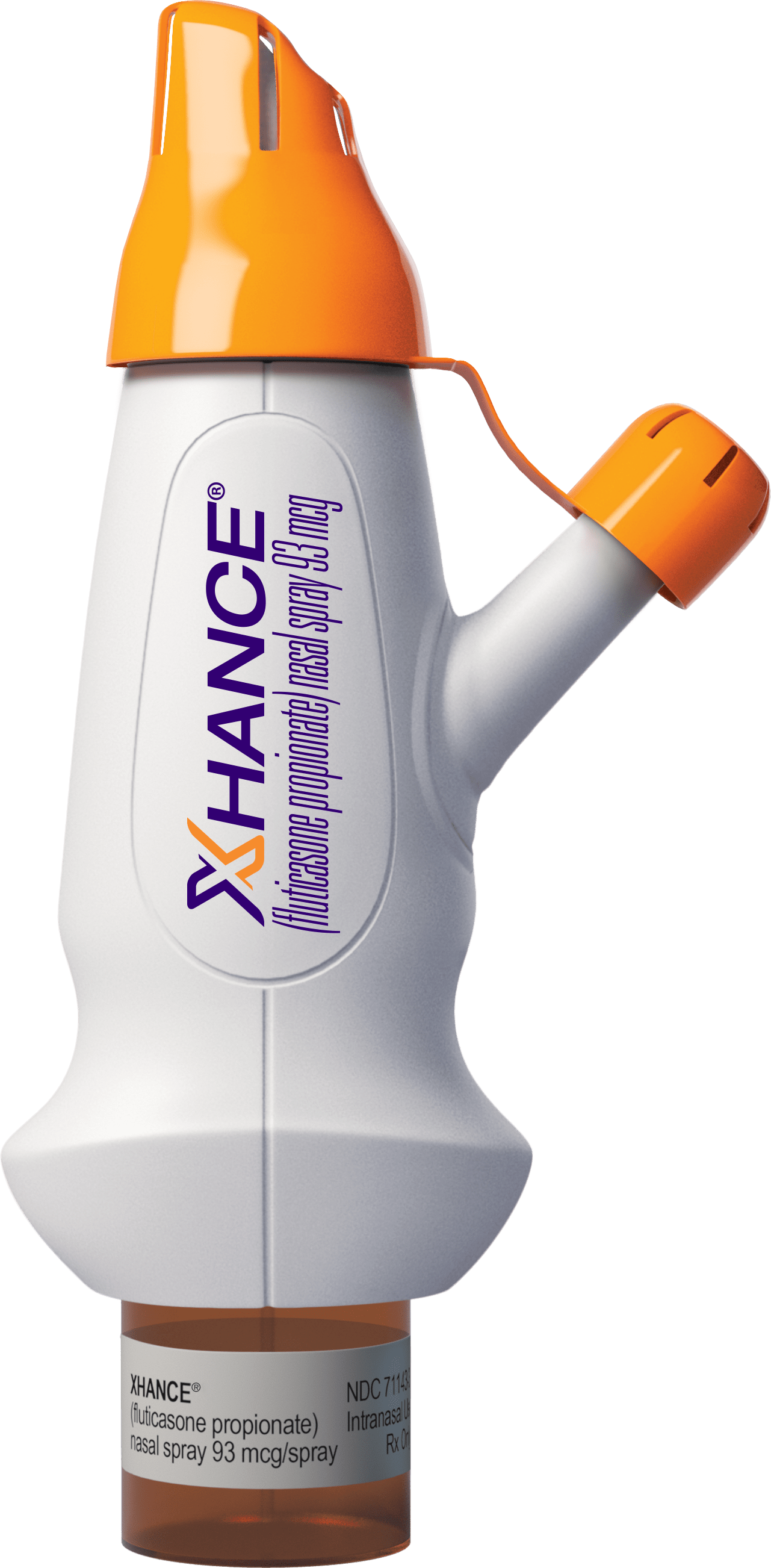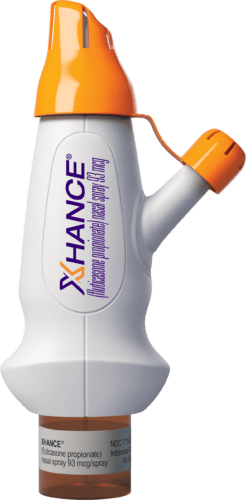
07 Oct Efficacy of New Exhalation Delivery System with Fluticasone (EDS-FLU) in Patients Who Remain Symptomatic on Standard Nasal Steroid Sprays
MedicalResearch.com Interview with:

Dr. Senior
Brent A. Senior, MD, FACS, FARS
Professor of Otolaryngology/Neurosurgery
Vice Chairman for Clinical Affairs
Nathaniel and Sheila Harris Distinguished Professor
Chief, Division of Rhinology, Allergy, and Endoscopic Skull Base Surgery
Department of Otolaryngology-Head and Neck Surgery
University of North Carolina at Chapel Hill
Chapel Hill, NC
MedicalResearch.com: What is the background for this study? How common is the problem of chronic rhinosinusitis with nasal polyps?
Response: Chronic rhinosinusitis (CRS) is a very common illness in the United States and around the world, estimated to impact 2-14% of the US population. Chronic rhinosinusitis with polyps is a particularly challenging form of the disease marked by significant impact on quality of life, and being challenging to treat with significant recurrences of symptoms despite standard medical and surgical treatment.
Inhaled intranasal steroids are standard therapy for patients with CRS including those with nasal polyps. However, many patients continue to have significant nasal symptoms despite treatment with these medications. This study was designed to answer the question of whether patients who had been receiving treatment with inhaled intranasal steroids and failed were improved by using EDS-FLU. Results were obtained by pooling data from two previous studies of the use of EDS-FLU in patients with CRS, called Navigate 1 and 2.
MedicalResearch.com: What are the main findings of the study? How does the XHANCE® system differ from traditional inhaled steroids?
 Response: XHANCE is unique in that while it uses a commonly used intranasal steroid, fluticasone, it is delivered in a very unique way into the nose. Instead of inhaling the medicine in each nostril by pushing down on a pump mechanism, XHANCE is designed to be distributed into the nose by blowing into the device. This method has been shown to result in much better distribution of the medicine throughout the nose and sinuses.
Response: XHANCE is unique in that while it uses a commonly used intranasal steroid, fluticasone, it is delivered in a very unique way into the nose. Instead of inhaling the medicine in each nostril by pushing down on a pump mechanism, XHANCE is designed to be distributed into the nose by blowing into the device. This method has been shown to result in much better distribution of the medicine throughout the nose and sinuses.
The previous Navigate 1 and 2 studies showed that treatment of patients with EDS-FLU significantly improved symptoms of congestion, rhinorrhea, facial pain and pressure after 4 weeks of treatment. This study found that patients with chronic rhinosinusitis with nasal polyps that had been using inhaled intranasal steroids and were switched to EDS-FLU received improvements in congestion, rhinorrhea, facial pain and pressure, and sense of smell after 4 weeks of treatment that were comparable to the whole treatment population. Further, improvements in the 22 item Sinonasal Outcome Test at 16 weeks were similarly seen.
MedicalResearch.com: What should readers take away from your report?
Response: Inhaled intranasal steroids remain standard therapy for treatment of patients with chronic rhinosinusitis with nasal polyps. However, in patients that continue to experience significant symptoms despite this treatment, switching to EDS-FLU may allow for significant improvement in symptoms.
MedicalResearch.com: What recommendations do you have for future research as a result of this work?
Response: The benefits of EDS-FLU are clear in patients with CRS and nasal polyps whether they have been treated with conventional inhaled intranasal steroids or not. Future studies will be needed to know how durable the results of this treatment are, and in particular, how this treatment can be used to potentially augment the results of surgery for CRS and nasal polyps.
I have no financial disclosures. I am, however, the Vice President of Corporate Development and Strategy for the American Rhinologic Society.
Citation:
Senior BA, Schlosser RJ, Bosso J, Soler ZM. Efficacy of the exhalation delivery system with fluticasone in patients who remain symptomatic on standard nasal steroid sprays. Int Forum Allergy Rhinol. 2020 Sep 24. doi: 10.1002/alr.22693.
Epub ahead of print. PMID: 32970395.
JOIN OUR EMAIL LIST
[mailpoet_form id="5"]We respect your privacy and will never share your details.
Last Modified: [last-modified]
The information on MedicalResearch.com is provided for educational purposes only, and is in no way intended to diagnose, cure, or treat any medical or other condition. Always seek the advice of your physician or other qualified health and ask your doctor any questions you may have regarding a medical condition. In addition to all other limitations and disclaimers in this agreement, service provider and its third party providers disclaim any liability or loss in connection with the content provided on this website.
Last Updated on October 7, 2020 by Marie Benz MD FAAD
